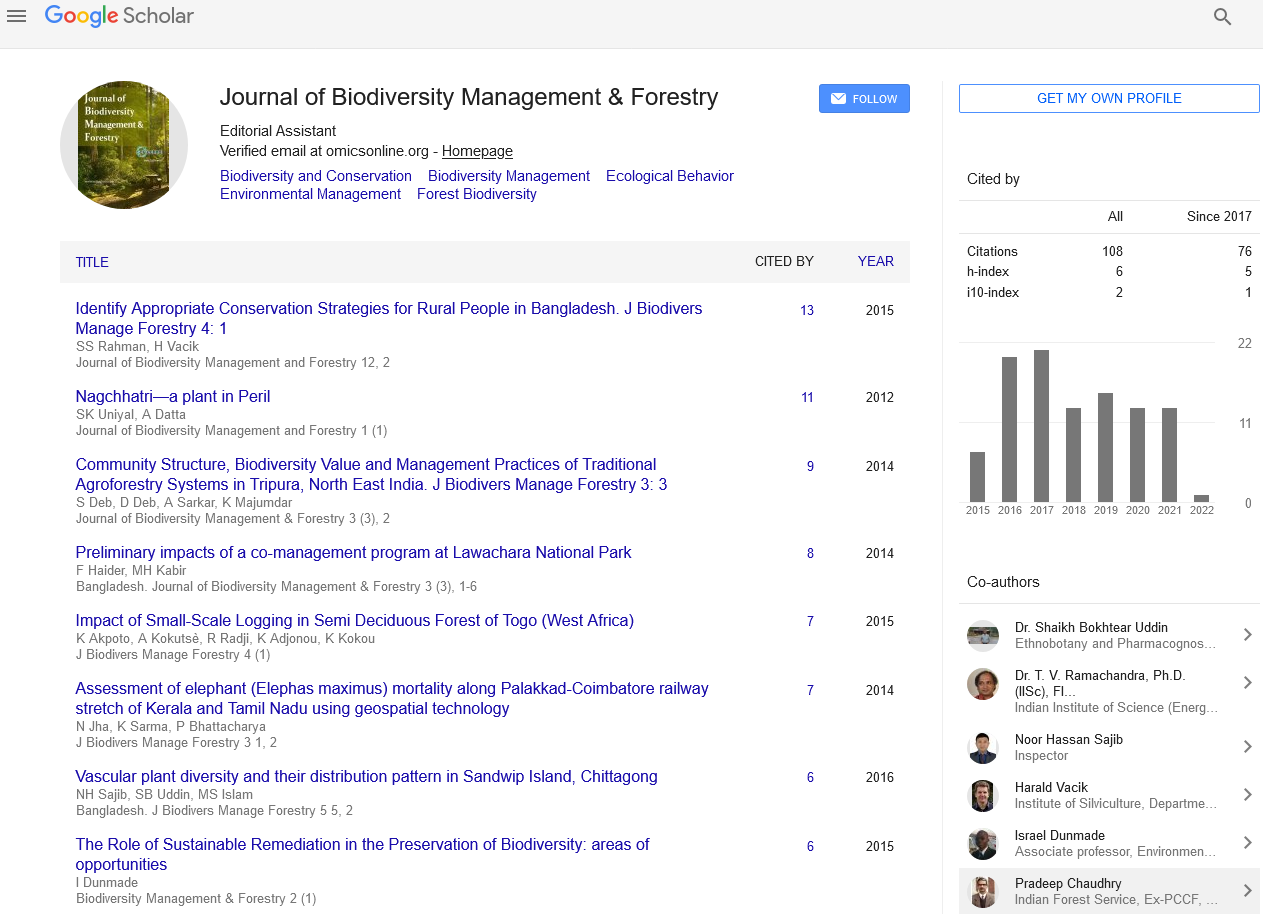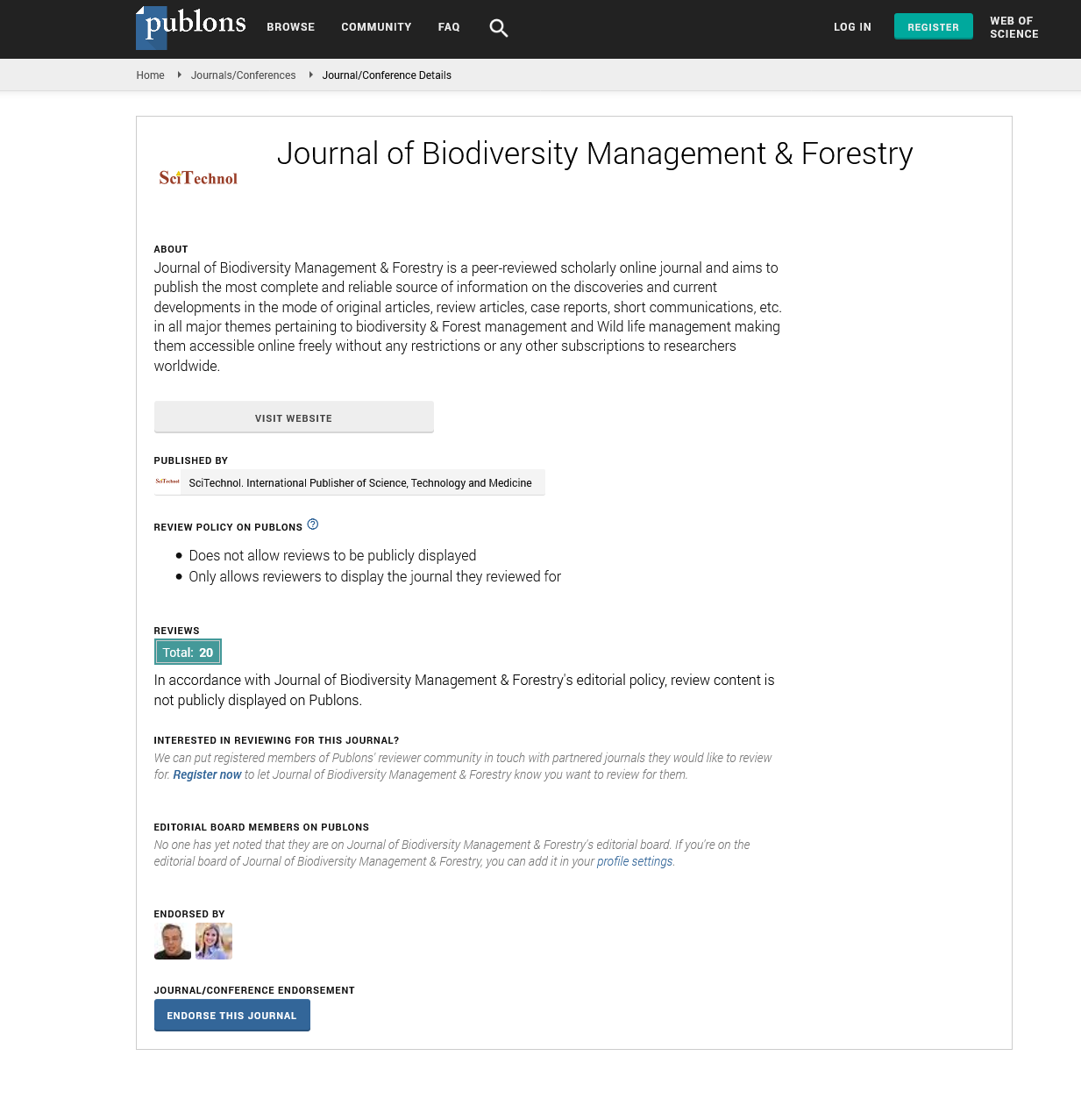The impact of climate change on illegal gold mining and the forest ecosystem in Ghana
Sharifa Abass
University for Development Studies, Iran
: J Biodivers Manage Forestry
Abstract
In Ghana, illicit gold mining and climate change have become two of the biggest threats to forest ecosystems, creating difficult ecological, financial, and societal issues. The combined effects of these causes on Ghana's forests are examined in this study, with particular attention paid to ecological deterioration, biodiversity loss, and the socioeconomic effects on nearby populations. Through an analysis of significant climate causes and the widespread problem of illicit mining, the study offers a thorough grasp of the complex dangers facing Ghana's forest ecosystems. The main climatic factors influencing the health of forests are highlighted as rising temperatures, changed precipitation patterns, and an increase in the frequency of extreme weather events. These modifications result in altered phenology, altered species distribution, and increased susceptibility to illnesses and pests. The resulting loss of biodiversity and disturbance of the ecosystem makes it much harder for forests to supply vital functions like soil fertility, water management, and carbon sequestration, which exacerbates the effects of climate change. These environmental hazards have significant socioeconomic effects. As the health of the forest declines, local communities—whose livelihoods primarily depend on it—will experience a rise in food insecurity and unstable economic conditions. The productivity of agriculture, the availability of water, and the general standard of living for these populations are all directly impacted by the loss of biodiversity and ecosystem services. In addition, miners and the local community are at serious risk for serious health problems due to the dangerous working conditions connected to illicit mining. In conclusion, the viability of Ghana's forest ecosystems depends on tackling the twin issues of illegal gold mining and climate change. It is imperative to adopt a comprehensive and integrated approach that blends robust policy enforcement, community participation, and creative adaptive techniques. As well as the resilience and preservation of these essential ecosystems.
Biography
Sherifa Abass is the General Manager for Lyf Jacket foundation LGB and Research Professional with over 8+years’ experience on the field of research and Data collection. Her career has been built within the sectors of Project Facilitating, Entrepreneurship, Environment, Health and Wellness, Business Development, Human Resources, Products and Services covering the full value chain of consultancy for transformational business best practices. Ms. Sherifa holds Diploma and Bachelor’s Degree in Integrated Community Development Studies, University for Development Studies - WA, Upper West Region (UDS)
 Spanish
Spanish  Chinese
Chinese  Russian
Russian  German
German  French
French  Japanese
Japanese  Portuguese
Portuguese  Hindi
Hindi 
